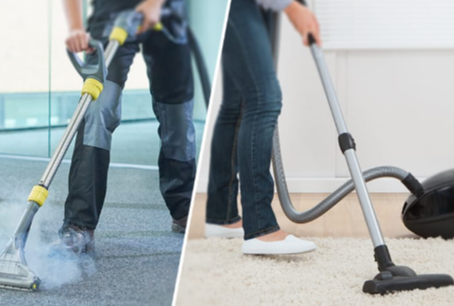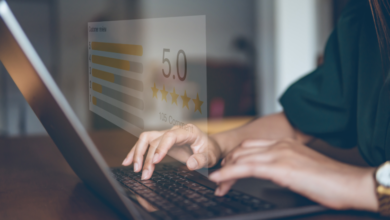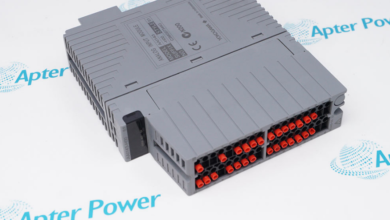Commercial vs Domestic Cleaning: Key Differences

If you’ve ever searched for a cleaner, whether for your home or your workplace, you’ve likely come across both domestic and commercial cleaning services.
At first glance, they seem interchangeable. After all, both involve mops, dusters, and an eye for hygiene. But in practice, the two serve entirely different environments, with unique tools, standards, and priorities.
It’s not just about who does the cleaning. It’s about how and why it’s done.
This guide will discuss how commercial and domestic cleaning differ, when each is appropriate, and how to choose the right service for your space.
The Purpose Behind Each Cleaning Type
Domestic cleaning is tailored to living spaces. It’s often recurring, designed around personal preferences, and focused on comfort, hygiene, and visual tidiness.
Think regular dusting, hoovering, wiping down surfaces, and keeping bathrooms and kitchens in good order. The work is typically lighter, with a focus on creating a pleasant, livable space.
Commercial cleaning, by contrast, serves workplaces and public buildings. This can look like environments with heavier footfall, more diverse hygiene needs, and specific compliance requirements.
Offices, retail spaces, schools, and medical practices often need out-of-hours cleaning, specialist sanitation, and strict documentation. It’s not just about presentation; it’s often about health and safety.
Each service is shaped by its context. Domestic cleaners use gentler products suitable for families or pets. Commercial cleaners are more likely to handle hazardous waste, operate industrial equipment, or manage large-scale sanitisation.
Training, Tools and Expectations
Professional domestic cleaners are trained in safe handling of household chemicals, time management, and often, discretion in private homes. They clean alone or in pairs and generally work around daily routines.
In commercial settings, however, cleaning staff are usually trained in COSHH (Control of Substances Hazardous to Health), risk assessments, and specific industry protocols.
Equipment like ride-on floor scrubbers, pressure washers, or carpet extractors is standard. There’s often a supervisor or team leader involved, especially for larger premises.
Expectations also differ. Domestic clients can request extra focus on particular rooms or ask for personal touches.
Commercial clients, meanwhile, are guided by contractual agreements, service-level standards, and audits. Performance is measured not just by tidiness, but by compliance.
Additionally, commercial cleaners often follow colour-coded cloth systems to prevent cross-contamination between areas.
In regulated environments like healthcare or food production, daily checklists, waste tracking, and infection control logs are part of the routine.
Domestic cleaners, meanwhile, can adjust their methods to match personal needs, such as using hypoallergenic sprays or avoiding certain areas during naptime.
Scheduling and Service Flexibility
Home cleaning usually happens during the day, mornings or early afternoons, at regular weekly or fortnightly intervals. It works around daily life, school runs, or remote work schedules.
Flexibility is common, and clients can rebook or add ad hoc services like deep cleans or post-party tidies.
Commercial cleaning tends to be more rigid. Cleaning happens early in the morning or late at night, minimising disruption to operations.
Contracts are often long-term and include rotating teams, inventory management (for supplies like paper towels or soap), and periodic deep cleaning of floors, windows, or upholstery.
One of the key advantages of hiring a professional commercial team is consistency. Businesses can’t afford unpredictability when it comes to cleanliness.
In regulated industries such as food production or healthcare, a missed bin or unclean sink could lead to a compliance breach.
Keyholding arrangements are also common in commercial setups, where cleaners can arrive and finish outside of business hours without staff on site.
Some businesses even require emergency response protocols or on-call cleaners for urgent sanitation after spills or incidents.
Conversely, domestic clients could need short-notice rescheduling due to illness, school closures, or holidays, and appreciate flexibility and familiarity over formality.
Cost Structures and Quoting
Another key difference lies in how services are priced. Domestic cleaning is usually quoted hourly, with some providers offering fixed-rate packages for certain tasks, like end of tenancy cleaning or spring cleans.
Clients are expected to provide some basic supplies, especially if they want specific brands used in their home.
Commercial cleaning, however, involves detailed site assessments. Quotes are based on square footage, foot traffic, specific requirements (e.g. sanitising telephones, cleaning escalators), and compliance needs.
It’s not uncommon for costs to include the use of specialist equipment, insurance cover, and uniformed staff.
Businesses typically require documentation too. This could include public liability insurance, DBS checks, method statements, and proof of training. That level of transparency is expected in a professional setting, and helps justify the often higher costs.
Which One Do You Need?
In general:
- If you’re looking to maintain your home, need support around your schedule, or are managing a one-off situation like a move, domestic cleaning services are the right fit.
- If you’re managing a public or professional space where hygiene standards affect staff wellbeing, customer perception, or legal compliance, commercial cleaning is essential.
Still unsure? Consider the level of traffic, the nature of the space, and whether your needs are personal or business-related. The two services could overlap slightly, but they’re ultimately designed for different worlds.
When to Call a Professional
There’s no shame in outsourcing cleaning. It’s often the smarter, more efficient choice. A home could need professional attention before putting it on the market, after a renovation, or when allergens and indoor air quality become a concern.
Commercial environments, on the other hand, require consistency from day one. If clients, employees, or patients walk through your doors, cleanliness isn’t optional. It’s part of your brand, your safety compliance, and your workplace culture.
Many cleaning companies now offer both domestic and commercial services, though usually through separate divisions. It’s worth confirming which area a provider specialises in before booking.
Hiring a domestic cleaner for a corporate space, or vice versa, can lead to missed expectations and underwhelming results.
Conclusion
Understanding the difference between domestic and commercial cleaning isn’t just helpful—it’s essential when choosing the right provider. The environments, tools, training, and expectations all shape how the job gets done.
So whether you’re freshening up a family flat or managing an entire office block, it pays to match the service to the setting. And when in doubt, choose a professional cleaning provider who understands the job and does it well.





